29 October 2016
A small group of us gathered at the statue of William III in Queen Square to remember the three day ‘riot’ of October 1831 which shocked the country at the time and put the government in fear of revolution. This event eventually led to the 1832 Reform Act which lessened the rampant corruption in the form of ‘rotten boroughs’, created new seats in a number of industrial cities and increased the franchise to include some of the male middle class (but not women or the working classes).
It was the idea of the Letterpress Collective to mark the event and remember “the ordinary folk who gave their lives in the struggle for a fair and equal society” by wrapping a giant version of the poster depicting the riot around the statue. We had readings from some of the observers of the time of the riot taken from Eyewitness (Chronicles No. 8 from Frenchay Village Museum) and a “small folded timeline showing the important events in the struggle for universal suffrage which put the riots in perspective” was handed out to passers-by.
In Bristol in 1830 only 6,000 men from a population of 104,000 were entitled to vote and the ‘riot’ was the culmination of years of struggle. In autumn 1831 the Tory dominated House of Lords rejected the reform bill which was intended to give the growing industrial towns and cities like Bristol greater representation in the House of Commons; a first step towards democracy. So on, Saturday 29 October 1831, when the arrogant Sir Charles Wetherell, a local judge (who strongly opposed reform) travelled to Bristol he was pelted with stones for threatening to imprison those who created a disturbance. His entrance in to Bristol sparked unrest and angry crowds attacked the Mansion House in Queen Square where Wetherell was staying. He escaped in disguise by clambering over the roofs but left Mayor Pinney and other officials in the besieged building. Wetherell was safe but never lived this down. (His statue is now at the Knot Garden at the Red Lodge.) The Light Dragoons sent to put down the disturbances were commanded by Colonel Brereton who initially tried to avoid a massacre by refusing to fire into the crowd. However, he eventually ordered the Guards to draw their swords and they charged across Queen Square leaving several people injured and one dead. This action inflamed the situation rather than subduing it.
Early the following morning crowds of Bristolians once again gathered and began selective smashing, burning and looting which carried on throughout the day. Their targets were the rich merchants, the corporation, finance sector, clergy, toll houses and prisons. Several constables were injured. There was another attack on the Mansion house and the crowd soon forced their way in, some destroyed the furniture while others liberated the wine in the cellars. The rioters moved on freeing prisoners from the four gaols in the city before burning three of them down. Several other buildings including the Governor’s house, Mansion House and Bishops Palace were torched, the latter with the loss of 6000 books. The Cathedral came within a whisker of being looted and burned. The Custom House collapsed with loss of life when the staircase fell down and half of Queen Square was lost – the fire fuelled by the cellars full of alcohol.
half of Queen Square was lost – the fire fuelled by the cellars full of alcohol.
However, the arrival of more reinforcements of cavalry was to lead to a massacre of Bristolians. Charles Greville, clerk of the Privy Council, wrote in his journal of November 11:
Nothing was to be seen on the other side but women and children, running and screaming in every direction. Some hundreds were killed or severely wounded by the sabre. One body of dragoons pursued a rabble of colliers into the country, and covered the fields and roads with the bodies of wounded wretches, making a severe example of them.
Many were severely wounded or killed and to this day the numbers of dead are unknown with figures ranging from tens to several hundred. The following year Colonel Brereton was brought to court for negligence but he shot himself before the court martial was concluded. Trials led to four people being hanged and dozens imprisoned or transported. However, fear amongst the rulers of the Bristol “revolution”, as it was known, helped the Great Reform Bill pass into law in June 1832.
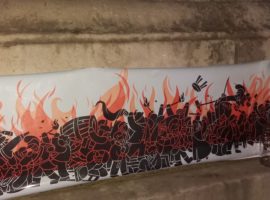
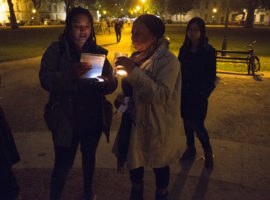
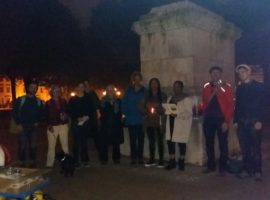
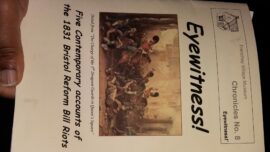
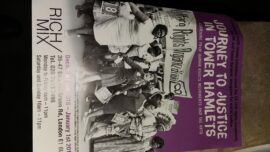
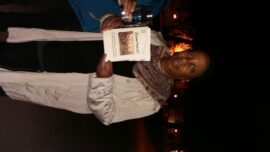
Rose Williams
Born and bred in Bristol I have always felt it to be a class divided city. Ordinary Bristolians have always been forgotten while the rich prosper. It is important to remember these horrific historical incidents. It gives a balance to all the tourist hype.